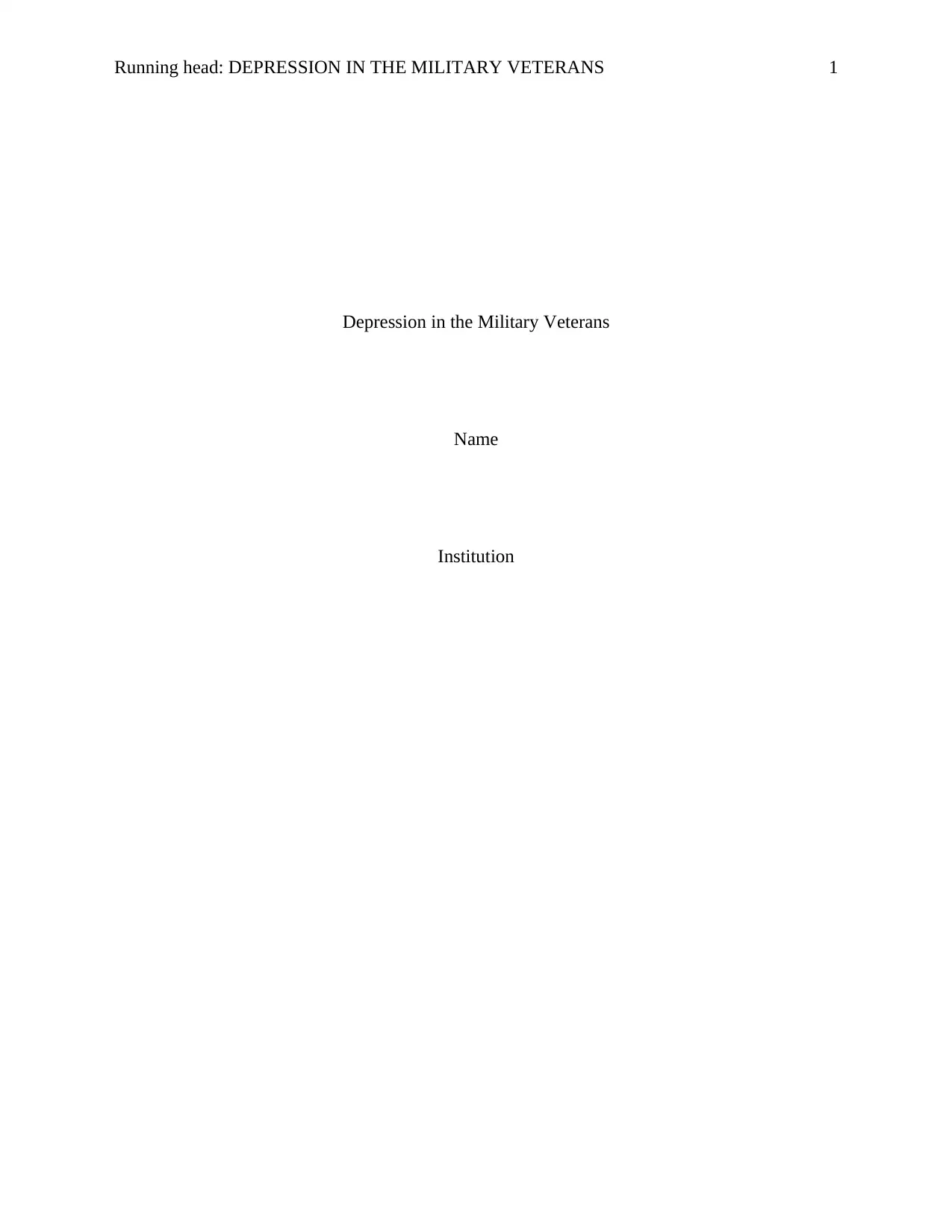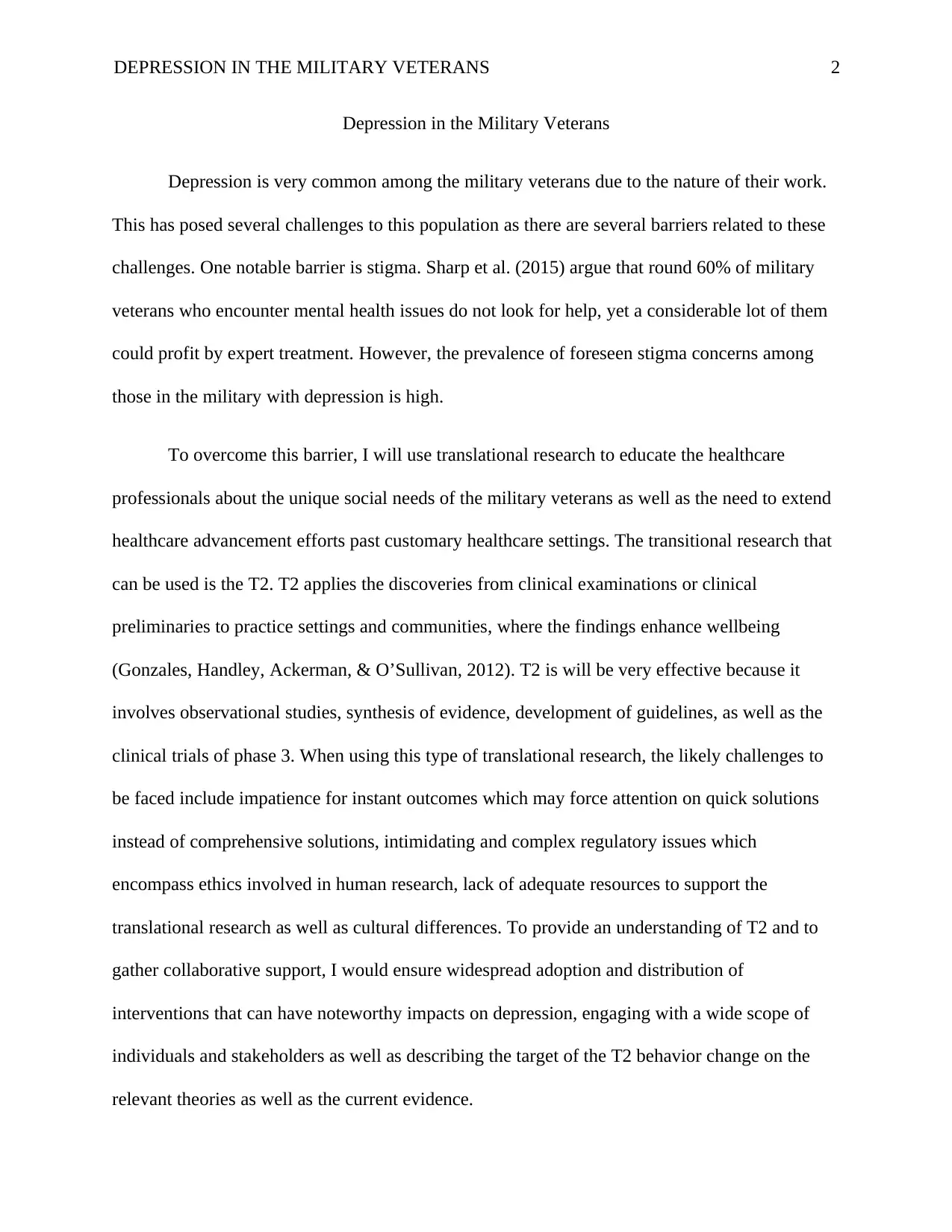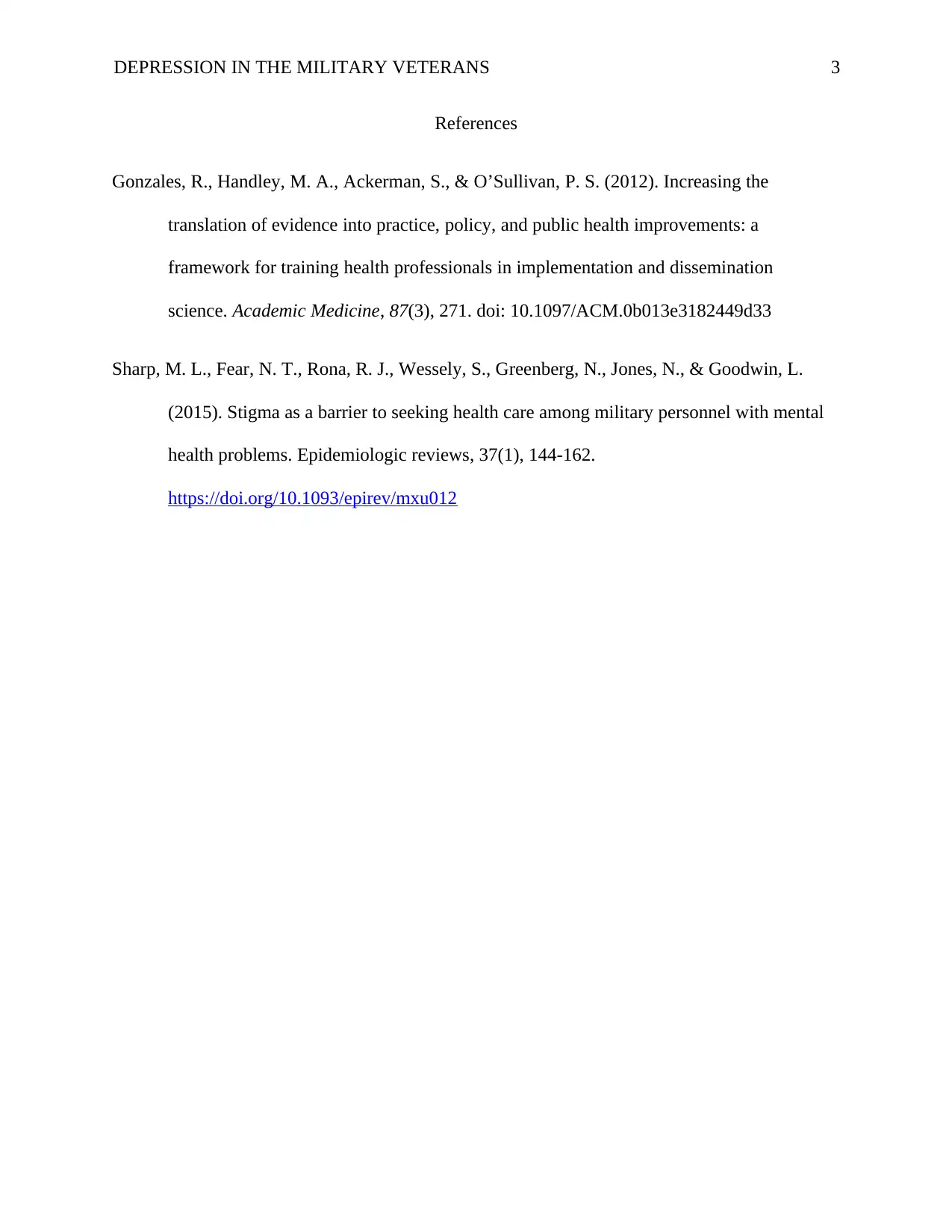Overcoming Stigma: Depression in Military Veterans & T2
VerifiedAdded on 2023/04/24
|3
|491
|89
Essay
AI Summary
This essay addresses the prevalent issue of depression among military veterans, highlighting the significant barrier of stigma that prevents many from seeking necessary help. It proposes using T2 translational research to educate healthcare professionals about the unique social needs of veterans and to expand healthcare promotion beyond traditional settings. T2 research, which applies findings from clinical studies to real-world practice, is presented as an effective approach involving observational studies, evidence synthesis, guideline development, and clinical trials. The essay acknowledges potential challenges in implementing T2, such as impatience for quick results, complex regulatory issues, resource limitations, and cultural differences. To foster understanding and support for T2, the author suggests widespread adoption and distribution of impactful interventions, engagement with stakeholders, and clear articulation of behavior change targets based on relevant theories and current evidence. Desklib offers a platform for students to access this essay and many other solved assignments.
1 out of 3










![[object Object]](/_next/static/media/star-bottom.7253800d.svg)